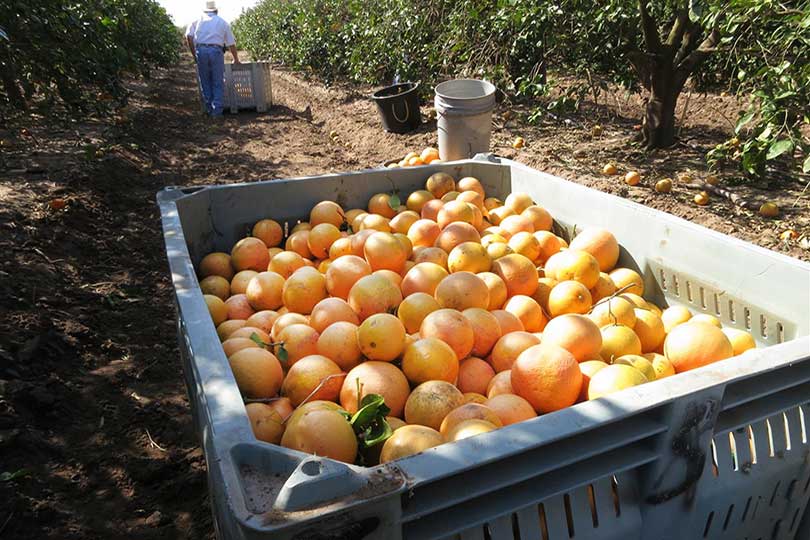There’s good news for the Texas citrus industry and consumers. Congress has included $59 million in federal funds to fight citrus greening and pest issues in the Omnibus Appropriations Bill.
“Our citrus growers contribute greatly to the economy of the Rio Grande Valley, and they deserve our assistance in the face of threats to their vitality,” Congressman Henry Cuellar said in a press release.
Cuellar included the funding in the bill with the help of Congressman Filemon Vela and Congressman Vicente Gonzalez.
“The $59 million worth of funding I have helped secure for citrus growers would be a great help to our farmers. We are making good progress toward correcting the damage done by threats like the incurable citrus greening disease, which has caused drastic reductions in citrus production in recent years and has placed all Texas citrus-producing counties under quarantine,” Cuellar said.
About $47 million of the included funds will be used to improve and repair U.S. Department of Agriculture’s (USDA) Animal and Plant Health Inspection Service (APHIS) facilities that engage in fruit fly eradication.
APHIS’ program works by releasing sterile male fruit flies into an area. Those flies then mate with females in the wild. Over time, that eliminates the next generation of fruit flies.
Fruit flies and other pests have a large impact on the $11 billion citrus industry. They’ve caused more than $1 billion in damages.
“The Rio Grande Valley has long been known for its Ruby Red grapefruits and thriving citrus industry,” Gonzalez said. “Recently, our growers in South Texas and across the country in Florida and California have become vulnerable to invasive pests and plant diseases like the Mexican fruit fly and citrus greening.”
An increase of $5 million for the Citrus Health Response Program (CHRP) is included in the $59 million allocation, along with $5.5 million for the Huanglongbing Multi-Agency Coordination Group.
Huanglongbing (HLB) is the proper name for citrus greening. Once a tree is infected with the plant disease by a psyllid, there is no cure for the disease.
Over the past few years, citrus greening has devastated the Florida citrus industry.
It was first positively identified in the Rio Grande Valley of Texas in 2008.
Dale Murden, president of Texas Citrus Mutual and a citrus grove owner, has personally seen the effects of citrus disease like HLB or citrus greening.
“Congressman Cuellar has long supported agriculture and the United States and Texas Citrus Industries. We cannot thank him enough for his support and his bipartisan approach to problem solving,” Murden said.
The appropriations bill also includes language encouraging agencies to work together to best control or eradicate citrus diseases and pests.
The omnibus appropriations, or spending, bill does not include language to help Texas cotton or dairy farmers as previously hoped.
“Some really disappointing political games caused the loss of assistance to thousands of struggling farmers across the nation,” Texas Farm Bureau (TFB) President Russell Boening said. “Congress needs to provide access to viable risk management tools for cotton and dairy farmers now before it’s too late. This all or nothing approach hurts farmers who are also weathering storms, droughts and floods, along with low commodity prices.”
The bill almost included access to 2014 Farm Bill programs for both cotton and dairy farmers, but last minute political maneuvering by key Senators killed the deal.

